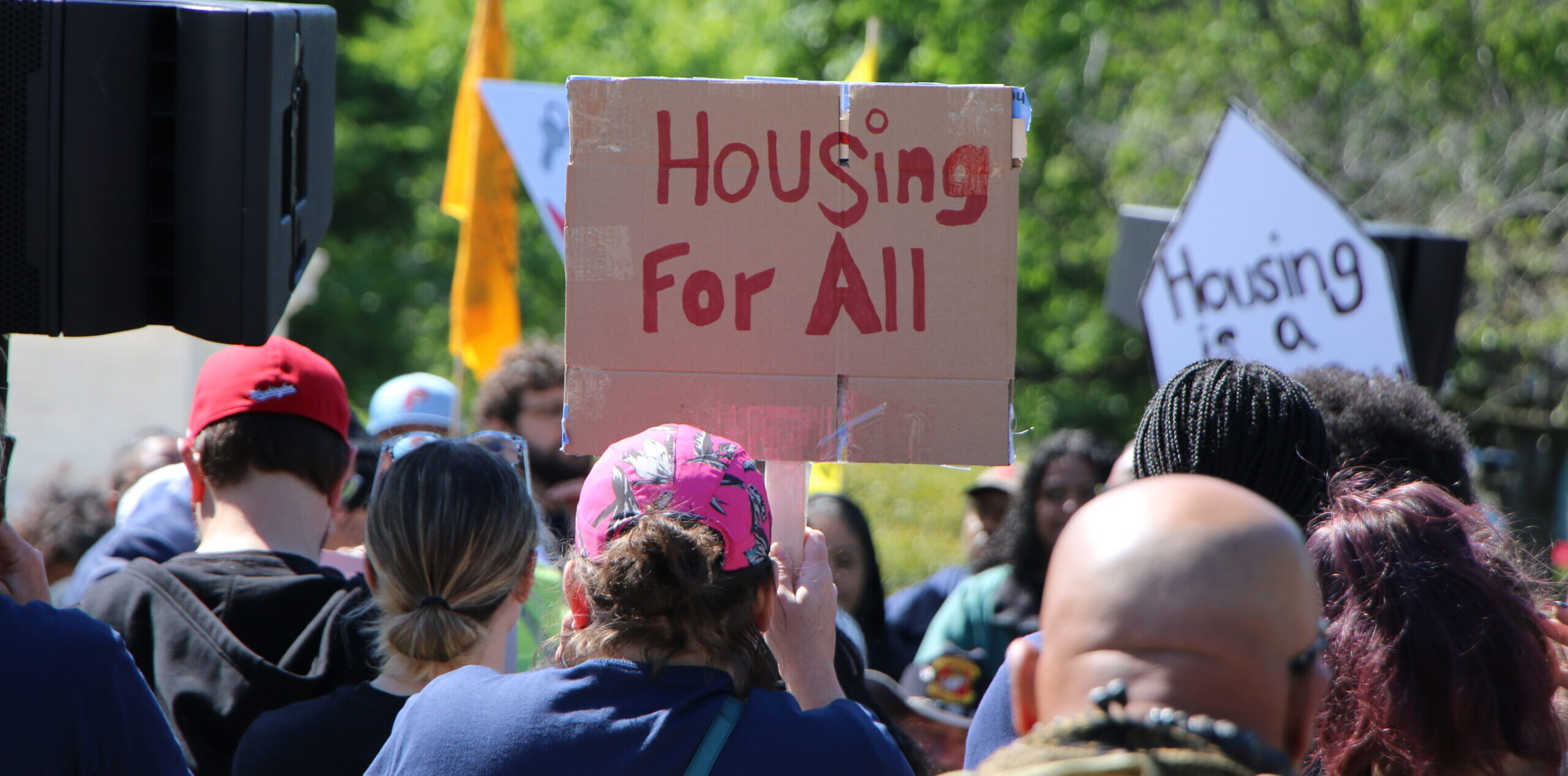


Call It What It Is: This Megabill is MEGA-BAD
05/22/2025

By Marisol Bello
At the Lab, we know that everyone — from advocates and politicians to celebrities and social media influencers — has a role in shaping the national conversation about housing and homelessness. The stories and messages we share can inform how the press covers these issues, what the public believes and how people feel about solutions.
And right now, we’re in a pivotal moment to reframe the conversation around the Trump administration’s proposal to gut critical housing and homelessness programs to reach people outside of our usual circles.
In Washington, there are a lot of conversations happening about the president’s spending and tax cut priorities and his proposed budget which cuts funding for housing, food and healthcare for seniors, families with children, people with disabilities and veterans.
When the president first issued his budget plan, the press, the administration and others talked about the “skinny” budget he proposed. It’s called that in Washington speak because it is incomplete and lacks detailed information.
But outside of Washington, it’s another matter.
The average person thinks about what skinny represents in our culture. Many people equate skinny with something desirable, especially for women. (Sadly.) In politics, some people equate skinny with lean and efficient — like a government that saves money for the people.
But this is not a desirable or efficient budget.
It’s a starvation budget. The proposal starves families with children, seniors, veterans and people with disabilities of their basic needs. We need to call it what it is because the language we use matters; the words we use get activated in our minds and influence our thoughts, perceptions and behaviors.
And just this week, the House passed a bill that is the first step to making the president’s spending and tax cuts law. This bill (like the budget) would make it harder than ever to keep a roof over our heads and feed our families. Already, this administration is cutting funding for vital services including housing assistance for seniors, children and people with disabilities.
This bill will starve our seniors and children of nutritious food, sending them to bed hungry. It deprives people with disabilities, veterans and others who need health care the most from accessing doctors and life-saving medicines.
In other words, this megabill is MEGA-BAD.
The words we use make the difference between having people listen or tune us out. The current federal spending debate gives us an opportunity to talk to folks in a way that acknowledges their concerns (even those people who don’t always agree with us), especially their worries about paying for housing, putting food on the table and getting health care.
For example, when speaking with people who may not agree with you or have a different orientation about the president and his priorities, consider acknowledging that they may feel like the president and his proposals are going too far. Then show how his proposals will hurt people and in fact, are going in the wrong direction.
That framing is in line with how many folks (especially those in the middle, those who consider themselves apolitical and even some who voted for him) are feeling about Trump’s decisions, whether related to housing, immigration, climate justice or food insecurity. According to this ABC poll, majorities were concerned that “the president will do too much to reduce the size and role of government (58%), argued he’s acted beyond his authority as president without justification (56%) and doubted the Trump administration’s commitment to protecting citizens’ rights and freedoms (55%).”
Words matter. This is a moment to connect with people’s values and profound concerns about the cost of housing, food and life these days.
For more tips, see the Housing Narrative Lab’s Resources page, including message guidance to effectively reach and connect with a variety of audiences.
1828 L St. NW
Suite 300
Washington, DC 20036
© Copyright 2026 Privacy Policy